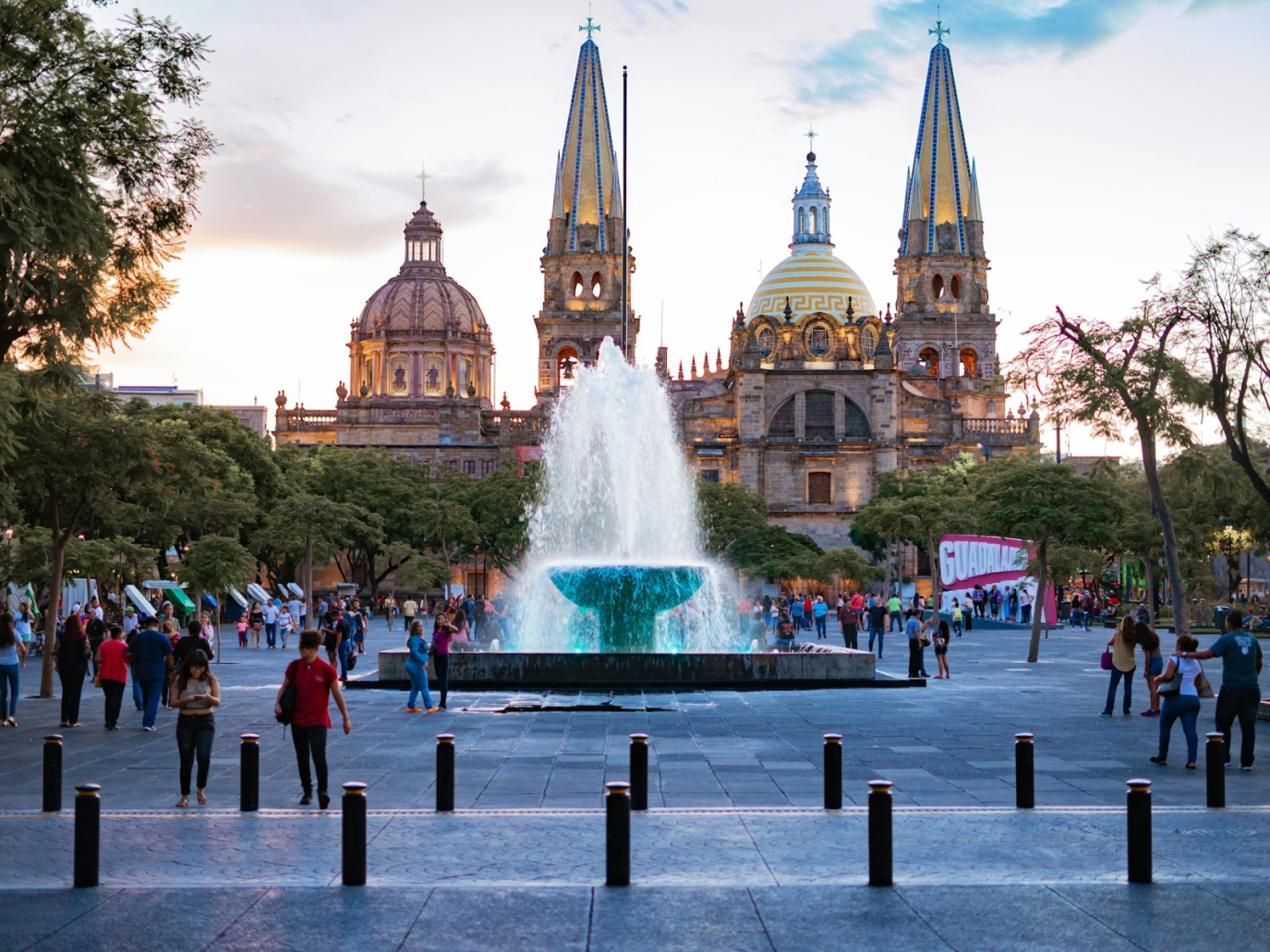(Guadalajara) There is a need for circular economy in Mexico. Among the 12,500 registered visitors at Solar + Storage y Ecomondo México in the city of Guadalajara, Jalisco, the interest in EPR, advanced recycling plants, circular water systems, renewable energy, organic waste management, and so on, is palpable. Endless lines at the expo booths, overcrowded conference areas, and long queues to talk to speakers at the end of each event. Among the 200 booths in the expo area, solar panels take up most of the space. However, in the conferences section, the king is the circular economy. "It's a topic that interests me a lot, I want to attend all the seminars," explains Rosa, a young environmental engineer originally from Leon.
Ecomondo México was born three years ago from the Italian-German collaboration of Italian German Exhibition Company México, as a regionalisation of the famous Italian fair, Ecomondo. With a clear goal: to create a community of Mexican circular economy evangelists and businesses.
"I think that right now in Mexico the circular economy is starting to take off," explains Juan Manuel Jáuregui Dávila, Director of Alianza Empresarial per el Clima, a group that brings together hundreds of companies in the sector. "At first we were only talking about waste, now the discourse is broadening. It is clear to state governments that the circular economy is a lever for growth."
However, the participants' enthusiasm does not collimate with the rest of the country. Although presented to the Mexican Senate, the Ley de Economía Circular has not yet been approved. In the country, 17% of the waste generated — 20,000 tons per day — is dispersed or burned informally. There are more than 200 municipalities that have no waste collection or separation services at all. Each Mexican produces one kilogram of waste per day, and 170 grams of that is not collected; of that, at least 13% is plastic. Only 9 states have waste regulations of some kind. Many landfills have low safety standards and recycling remains below 10%. The country consumes monstrous amounts of PET (it is the world's leading consumer of bottled water) but recycles little of it in a poorly industrialised manner, even in large metropolitan areas such as Distrito Federal.
"Yet many companies want to reduce both waste production and raw material use, and favor recycled material," Jáuregui Dávila continues. "Requests for low-emission as well as circular products or production models are increasingly coming from Europe and our North American neighbors. This is why the circular economy is starting to interest Mexican entrepreneurs.”
There is no shortage of resources made available for transition, although they are scarce. Private financial institutions and state governments have created various funds for transition. "For example, in Jalisco, there is a financial entity called Focal, which has started providing green loans. Right now, they are in high demand for the installation of solar panels, but they can also be used for energy efficiency, less impactful production systems, and collection. The hope is that the issue will reach the national level," the industry representative continued.
"The circular bioeconomy here in Mexico also has great potential, from bioenergy to materials there are great opportunities for growth in the agriculture and livestock sectors," explains Raúl Tauro, President of Red Mexicana Bioenergia (REMBIO). There are very important sectors in the country such as agave for tequila or avocado crops, which produce significant amounts of biowaste, that goes unused.”
According to Alessandra Astolfi, Global Director of Exhibitions at Italian Exhibition Group's Green & Tech Division, "Ecomondo Mexico's central goal is to create partnerships with Mexican and foreign manufacturing companies to employ the best available technologies, choosing solutions that reduce the environmental impact of companies operating in the country."
"The wide range of solutions on display here in Jalisco will enable companies of all sizes to transform their linear value chains into circular value chains while finding various sustainable energy options that will help them mitigate and eliminate their carbon emissions," said Bernd Rohde, General Manager of Italian German Exhibition Company Mexico.
A destination for Italy's circular economy?
Dominating the exhibition spaces at the Guadalajara Expo is the Italian pavilion, which has brought around 20 circular economy companies seeking partnerships with Mexican entities. "Ecomondo Mexico provides a perfect context to bring Italy's highly advanced know-how, since this country is objectively lagging [on the circular economy]," explains Alessandro Modiano, Italian Ambassador to Mexico, who spoke at the opening ceremony. "On the other hand, business and political awareness is growing a lot. So, you need a fair like this to bring together the capacity of our Italian companies with a country that wants to go in the direction of circularity. I think it is a classic case of perfect cooperation”.
Yet still few companies, ICE data show, look to Mexico, a country undergoing rapid industrialisation, as a foreign trade outlet. "Mexico has huge prospects, thanks in part to a linguistic and cultural proximity," the ambassador continues. "Not only that, setting up shop here also means being able to export to the United States without tariffs. Mexico truly is one of the leading countries in the future of the circular economy."
But Ecomondo Mexico looks far beyond the borders of the North American country and points to all of Latin America. "Across the Americas, there is a growing interest in circular economy issues and few spaces to discuss them," continues Alessandra Astolfi. "With the support of chambers of commerce, businesses, and organisations like IILA, the Organización Internacional Ítalo-latinoamericana, we can grow a network of circular economy insiders around Ecomondo Mexico." And thus accelerate the circular transition.
Image: Guadalajara (ph Roman Lopez, Unsplash)
This article is also available in Italian / Questo articolo è disponibile anche in italiano



